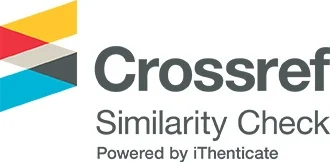رأس المال الفكري وتأثيره على فاعلية الأداء في القطاع المصرفي الليبي دراسة ميدانية على المصارف التجارية الليبية
DOI:
https://doi.org/10.65137/jhas.v8i15.156الكلمات المفتاحية:
رأس المال الفكري، القطاع المصرفي، المصارف التجارية الليبيةالملخص
الملخص:
تهدف الدراسة إلى التعرف على مكونات رأس المال الفكري ومدى توفر هذه المكونات، وما هو تأثير رأس المال الفكري على فاعلية الأداء للمصارف قيد الدراسة، وتوصلت الدراسة إلى مجموعة من النتائج منها: هناك تفاوت في مكونات رأس المال الفكري على فاعلية الأداء للمصارف قيد الدراسة، وإن كان المكون الثالث لرأس مال العلاقات الأقل تأثيرًا، وتحتاج متطلبات رأس المال البشري من أجل تطبيقها إلى تدريب الموظفين والنهوض بهم للوصول إلى المعرفة النادرة، واتضح وجود بعض الضعف في الهيكل التنظيمي وفي بعض الأنظمة الإدارية التي تشجع على الابتكار والابداع والتطوير، ووجود ضعف في بعض الخدمات المصرفية المقدمة من قبل المصارف قيد الدراسة تؤثر على فاعلية الأداء. ومن خلال النتائج التي تم التوصل إليها يوصي الباحث بمجموعة من التوصيات نذكر منها: يجب التعامل مع رأس المال الفكري على أنه مورد استراتيجي من بين الموارد المختلفة التي تمتلكها المصارف، والحافظ عليها، والعمل على تطويرها بشكل مستمر لدورها في نجاح العمل المصرفي وتحقيق الميزة التنافسية، وضرورة التركيز والاهتمام بمكونات رأس المال الفكري باعتباره يفوق رأس المال المادي في العصر الحديث، والعمل على استقطاب الأفراد ذوي الكفاءة والمهارة، وضرورة الاهتمام والتركيز على رأس المال الفكري لدوره المهم في إدارة الأزمات والتحديات، والعمل بالإفصاح عن مكونات رأس المال الفكري المختلفة بطريقة ملائمة لتقديم معلومات مفيدة وصادقة لمستخدمي القوائم المالية، وتشجيع وبناء وإنشاء فرق عمل لما لها من دور في تكوين رأس المال البشري المتميز الذي يسهم في تحقيق الميزة التنافسية والأداء الأفضل، وإنشاء إدارة أو قسم أو وحدة متخصصة تقوم بإدارة رأس المال الفكري وتنميته من خلال توفير الكوادر البشرية المتخصصة في مجال إدارة الأزمات لما لها من دور حيوي في الحد من الأزمات والتحديات وتكون مدعومة بمكتبة الكترونية.







